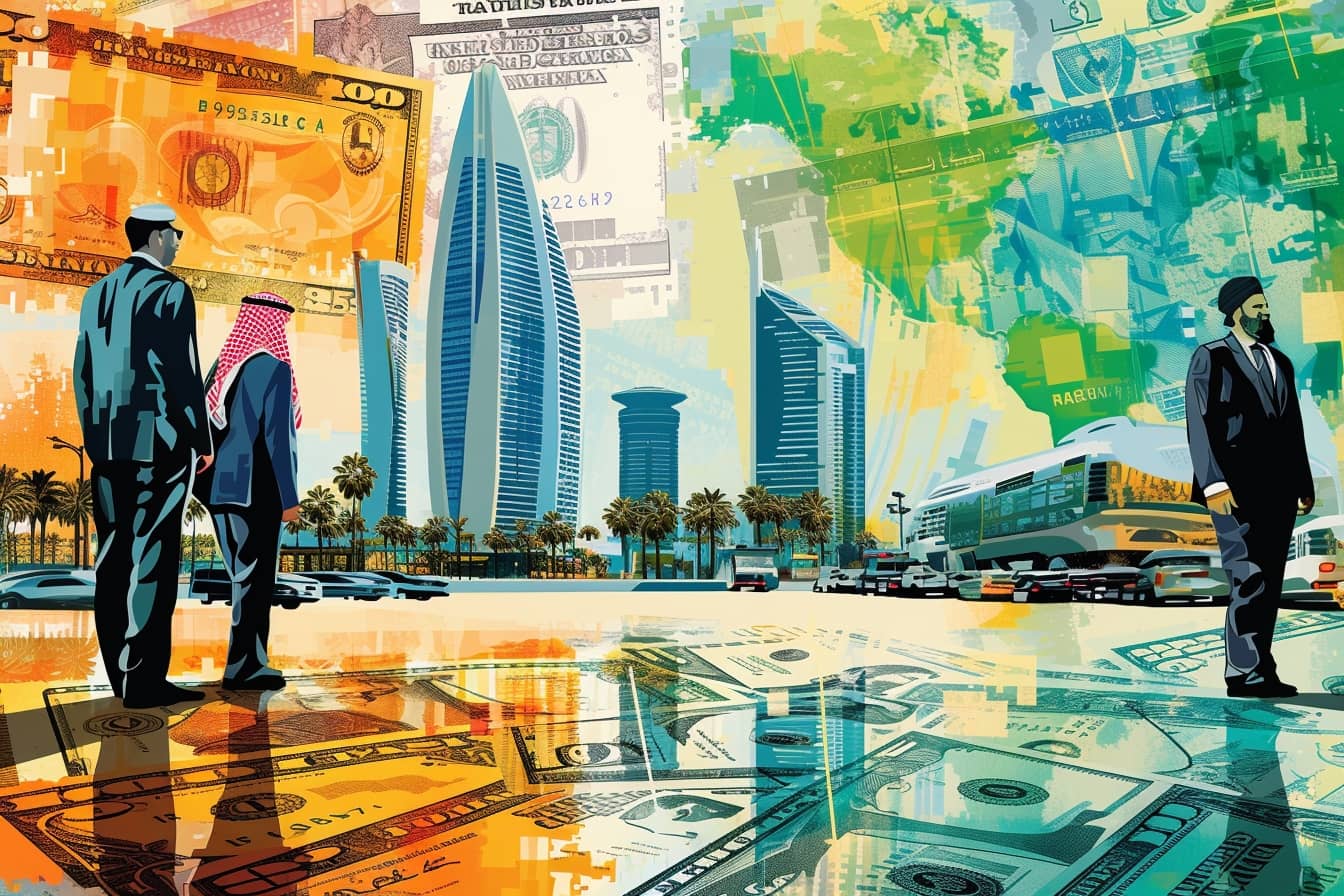The world witnesses the economic rise of the BRICS and their recent enlargement, three emerging global players that are "transversal" to any alliance are planning very ambitious growth strategies. It's about India, Indonesia e Saudi Arabia. In a race to reach the level of high-income economies in the next 25 years, these nations are positioning themselves with a truly aggressive strategy.
The race towards economic growth
In an increasingly interconnected world, the pursuit of sustainable and inclusive economic growth is no longer an option. It's a necessity. This is why three countries with large populations and abundant resources have a unique opportunity to transform themselves into leading economic powers.
India: high-tech revolution

India, led by the Prime Minister Narendra Modi, is aiming to become a global technology powerhouse. With his ambitious plan to produce microchips and smartphones, India aims to position itself as a hub of innovation and technology manufacturing. A transformation that includes investments in digital infrastructure, policies favorable to attracting foreign investment in the technology sector, and initiatives such as "Make in India" and "Digital India", which aim to promote the local manufacturing industry and digital literacy.
India, already known as a giant in the IT services sector, now wants to expand its reach in the manufacturing sector. The target? Become a direct competitor of countries like China in the global electronic devices market.
Indonesia: the nickel giant

Indonesia is strategically positioned to take advantage of the growing renewable energy market, particularly in the electric vehicle battery sector.
With its vast reserves of nickel, Indonesia is not only limited to mineral extraction, but is also moving into the upstream and downstream of the production process, from nickel refining to the production of batteries for electric vehicles. This effort is accompanied by government policies to attract foreign investment and promote technological development initiatives.
Indonesia aspires to become a leader in the supply of battery materials globally, positioning itself as a crucial player in the transition to a greener and more sustainable future. And he has all the credentials to do so.
Saudi Arabia: everything goes through diversification

Saudi Arabia aims to undertake one of the most significant economic transformations in its history. With the “Vision 2030” plan, the country aims to reduce its dependence on oil and diversify its economy through investments in sectors such as tourism, renewable energy, education and technology. An incredible, enormous U-turn that today seems like something lunar, impossible.
Saudi Arabia is investing heavily in futuristic (and somewhat crazy) projects like the city of Neom, a $500 billion project for an ecological and technologically advanced metropolis. These efforts aim to transform the country into a hub of innovation and attraction for businesses and talents from around the world, outlining a future that goes far beyond its historic identity as a leader in the oil sector.
Challenges and possibilities in the future of these “three musketeers”
I have mentioned a few details of three trajectories that would require a lot of time and a lot of analysis. Trajectories that contemplate the change of individual national economies, and a strategic repositioning in the global economic landscape.
Obviously, the future is not written and the future could see the “climb to the stars” of one, or all three of the countries I have considered fail. These processes pose significant risks, especially for developing countries. International competition, rapidly changing market dynamics and the need to preserve the environment are just some of the complex issues these countries face.
India, Indonesia, Saudi Arabia: three sliding doors into the future of the world
India, Indonesia and Saudi Arabia's journey towards an economically prosperous future is full of challenges, but also immense opportunities. Their success will not only depend on domestic policies, but also on their ability to effectively navigate an ever-changing global economic environment.
The world watches with interest how these countries will shape their economic destiny and, with it, the world economic order of the 21st century.


